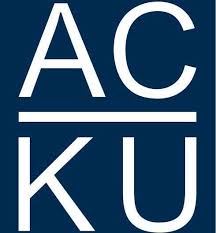Rethinking absorptive capacity : a new framework, applied to Afghanistan's police training program / authors Robert D. Lamb, Kathryn Mixon.
Material type: TextLanguage: English Series: (Managing absorptive capacity series)Publication details: Washington, DC : Center for Strategic and International Studies, 2013.Description: xi, 55 pages ; 28 cmISBN:
TextLanguage: English Series: (Managing absorptive capacity series)Publication details: Washington, DC : Center for Strategic and International Studies, 2013.Description: xi, 55 pages ; 28 cmISBN: - 9781442225053
- Pamphlet DS371.412. L363 2013
| Item type | Current library | Call number | Status | Date due | Barcode | Item holds | |
|---|---|---|---|---|---|---|---|
 Monograph
Monograph
|
Afghanistan Centre at Kabul University | Pamphlet DS371.412.L363 2013 (Browse shelf(Opens below)) | Available | 3ACKU000360130 |
“June 2013”.
Abstract: In development, stabilization, and peace building, donors increasingly recognize the importance of being sensitive to the local contexts of their efforts. Yet the use of "blueprints" remains widespread. Even when standard approaches are modified for particular aid partners, there often remains a poor fit between donor efforts and local conditions. The waste and disruptions that result are even greater in high-profile and politically sensitive situations, when political considerations demand large-scale responses. When recipients cannot absorb the aid and attention they are offered, the common response is "capacity building" -- as if the source of the problem is the recipient's implementation capacity. In this report, the authors present the results of their research on the sources of absorptive capacity. They find that this sort of "blaming the victim" mentality, while common, is not always justified. While it is true that many aid recipients do not have adequate capacity for implementation, it is equally true that many aid programs are designed and implemented without an adequate appreciation of local desires, resources, capabilities, and challenges. Absorptive capacity, in other words, is a byproduct of the donor-recipient relationship. The authors present a new framework for measuring absorptive capacity. This framework is intended to supplement existing planning, monitoring, and evaluation processes, offering a new way to test whether an existing approach is compatible with local conditions and a method for improving the fit.
Includes bibliographical references.
Contents: 1. Introduction -- 2. The concept and its analogues. Early conceptuatlizations -- Ongoing debates in international development -- Absorptive capacity for knowledge, technology, and innovation -- Ecological systems, resilience, and adaptive capacity -- 3. Absorptive capacity as adaptive capacity. Adaptive capacity -- Theory of change -- The MAC framework -- Applying the framework -- 4. Afghanistan : National Police training programs. Intended outcomes -- Intervention design -- Prerequisite structure -- Actual outcome -- Donor capacity -- 5. Concluding remarks.
English
